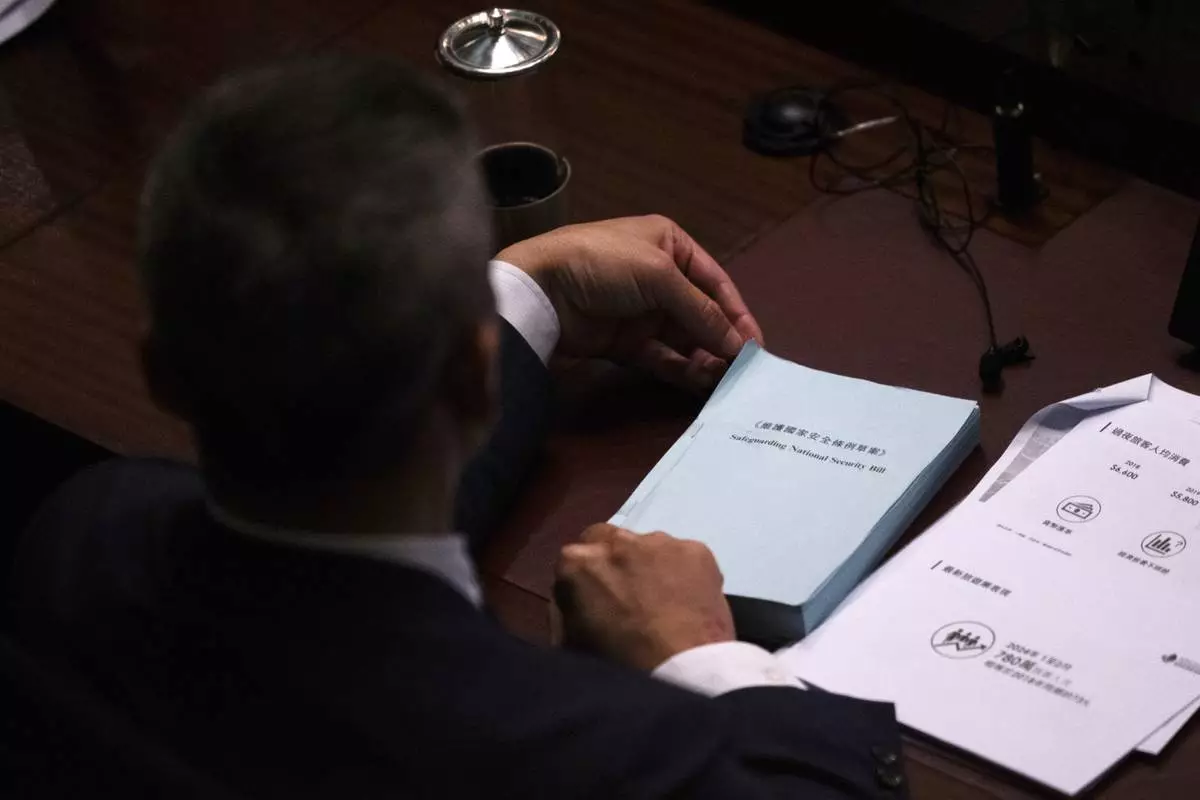Hong Kong's notoriously expensive housing makes owning an affordable home a pipe dream for many residents.
A local architect has proposed a novel idea to help alleviate that problem: building stylish micro-apartments inside giant concrete drainage pipes.
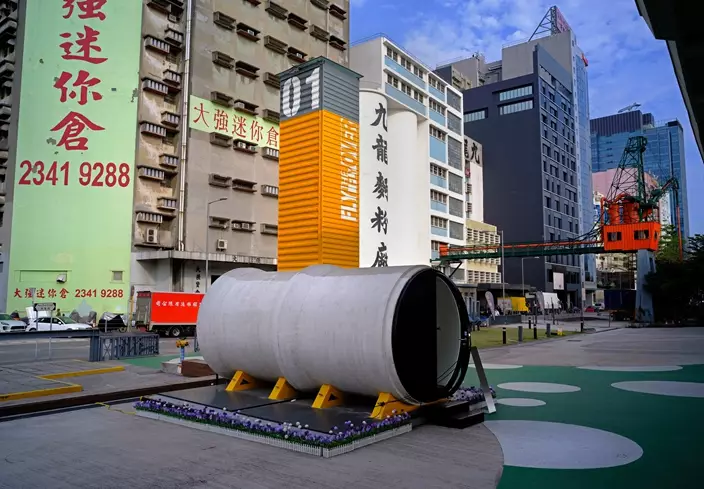
This Tuesday, March 13, 2018, photo shows an OPod tube home created by architect James Law at Hong Kong's industrial area of Kwun Tong. Hong Kong’s notoriously expensive housing makes owning an affordable home a pipe dream for many residents. (AP Photo/Vincent Yu)
James Law's OPod Tube Housing is still just at the conceptual stage, but it's attracted attention as an innovative though untested way to deal with housing shortages.
At 100 square feet (9.3 square meters) the tube houses are not that much smaller than Hong Kong's infamous "cubicle homes" — older apartments subdivided into cramped and squalid living spaces. They're roomier than other types of tenement housing, such as so-called "coffin" and "cage" homes.
The idea came to Law when he spotted some leftover storm sewer drain pipes at a construction site.
They might be converted into "really cute micro-living architecture," he said.
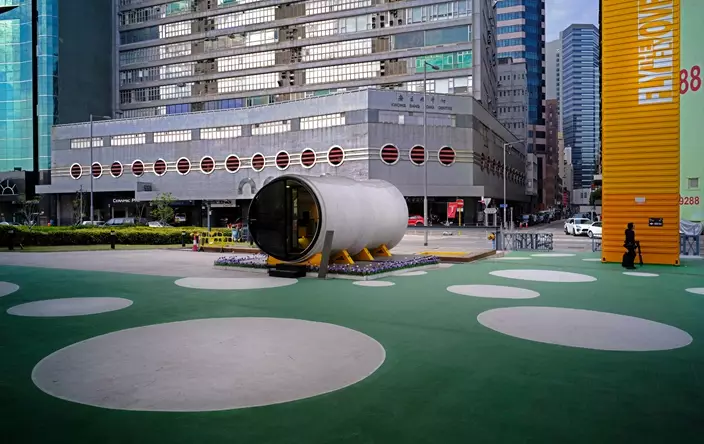
This Tuesday, March 13, 2018, photo shows an OPod tube house created by architect James Law at Hong Kong's industrial area of Kwun Tong. Hong Kong’s notoriously expensive housing makes owning an affordable home a pipe dream for many residents. (AP Photo/Vincent Yu)
Law has only built a prototype to test public interest but has already received inquiries from around the world.
There's a lot crammed into the OPod. It consists of two sections of 2.5-meter (about 8 foot) diameter pipes fitted with glass doors on both ends. A living area inside includes a bench that converts into a bed, opposite shelves on the facing, curving wall. Another shelf fits a bar fridge and a microwave next to a galley sink beneath an air conditioner. A tiled bathroom at the end includes a combined shower and toilet.
The OPod cost $15,000 to build. Law said he envisions renting them out for less than $400 a month to recent graduates on low incomes trying to get a foot on the housing ladder. That's a fraction of the market rate.
"My dream is the OPods will be a new kind of living for young people just starting out in life," Law said.
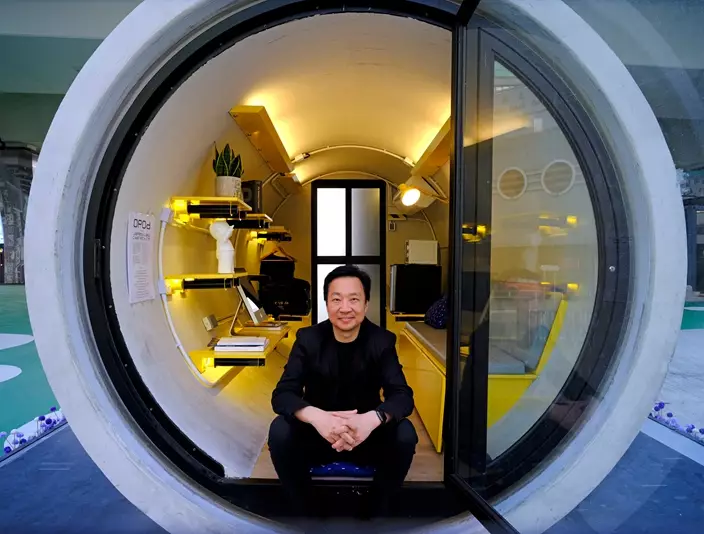
In this Tuesday, March 13, 2018, photo, architect James Law poses during an interview at his OPod tube house in Hong Kong's industrial area of Kwun Tong. Hong Kong’s notoriously expensive housing makes owning an affordable home a pipe dream for many residents. (AP Photo/Vincent Yu)
It's less a long-term solution to Hong Kong's housing crisis than a novel way to make use of leftover spaces where conventional housing doesn't fit. The pipe homes could be stacked into gaps between buildings, under highway overpasses or on the roofs of existing buildings.
"This kind of house is really portable. We (can) actually make it in a construction site and then we lift it onto a truck and we can deliver it anywhere," Law said. "So it represents a new, affordable architecture."
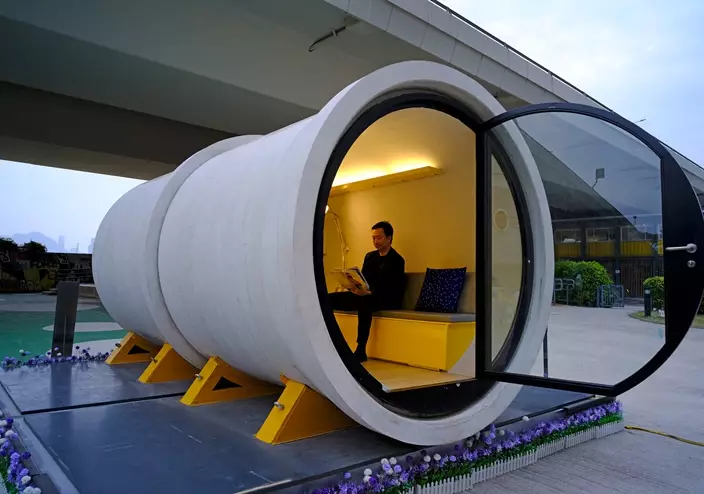
In this Tuesday, March 13, 2018, photo, architect James Law sits at an OPod tube house in Hong Kong's industrial area of Kwun Tong. Hong Kong’s notoriously expensive housing makes owning an affordable home a pipe dream for many residents. (AP Photo/Vincent Yu)



